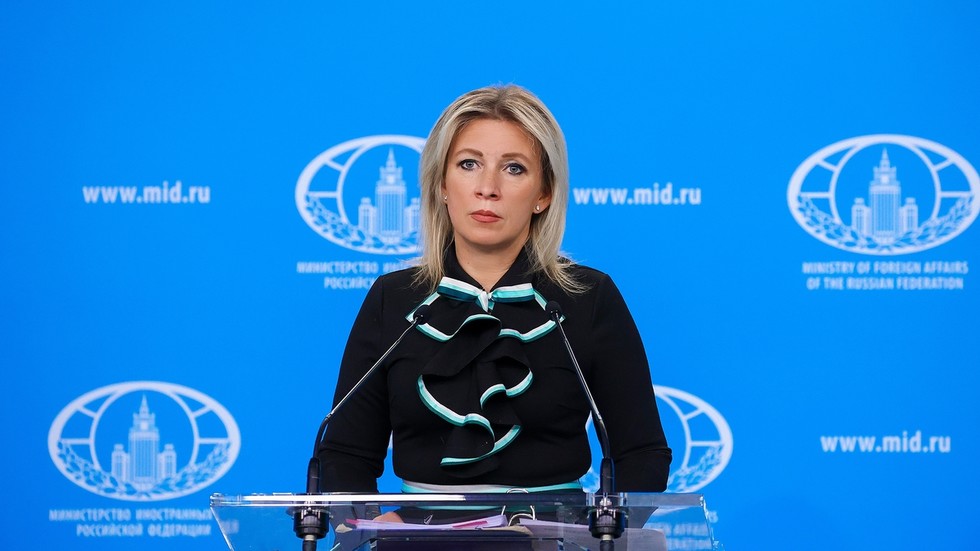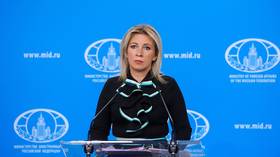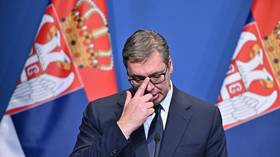
Russia says international law supports Serbia’s position in breakaway province

File photo: Russian Foreign Ministry spokeswoman Maria Zakharova attends her weekly briefing in Moscow © Sputnik / Russian Foreign Ministry
Moscow is “alarmed” by the mounting tensions in Kosovo, which are the fault of “radical” ethnic Albanian authorities in the breakaway Serbian province and their Western sponsors, Russian Foreign Ministry spokeswoman Maria Zakharova said on Monday.
Authorities in Pristina have undertaken a “series of provocations” with the connivance of the US and the EU, using “ethnically motivated violence” to target the remaining Serbs in the province, Zakharova told reporters.
Prime minister Albin Kurti is seeking to distract from a failed domestic policy by “playing with fire, spinning up Serbophobic hysteria” and escalating tensions “closely approaching an armed conflict,” said Zakharova. Only the forbearance of local Serbs and the government in Belgrade is preventing things from sliding into open violence, she added.

Read more
“We stand in solidarity with the leadership of Serbia,” Zakharova said, endorsing Belgrade’s position that the Kosovo Albanians and the West “cynically ignore the fundamental UN Security Council Resolution 1244, the Brussels and Washington agreements.”
The UN resolution provided for a NATO presence in the province after the bombing of Serbia in 1999, while the 2013 Brussels agreement envisioned autonomy for the remaining ethnic Serbs.
UNSCR 1244 clearly provides for Serbia to send its security forces into the province, and “not even apologists for the ‘rules-based order’ can deny this,” Zakharova added. She specifically called out German Foreign Minister Annalena Baerbock’s recent statement that such a deployment would be “totally unacceptable,” which Serbia has slammed as “absurd.”
We will continue to help Belgrade defend legitimate national interests with regard to Kosovo based on UNSCR 1244, which remains in force without any exceptions.
Instead of pressuring the ethnic Albanians to abide by the signed agreements, the US and the EU have “blatantly sabotaged” the Brussels document, while preferring the “vicious practice” of bullying and blaming the Kosovo Serbs, Zakharova noted.
Last month, Brussels and Washington did manage to persuade Pristina to abandon its plan for outlawing Serbian license plates. The relative peace lasted less than two weeks, however, as ethnic Albanian police deployed in force in Serb-majority areas, harassing a kindergarten and a family winery.




